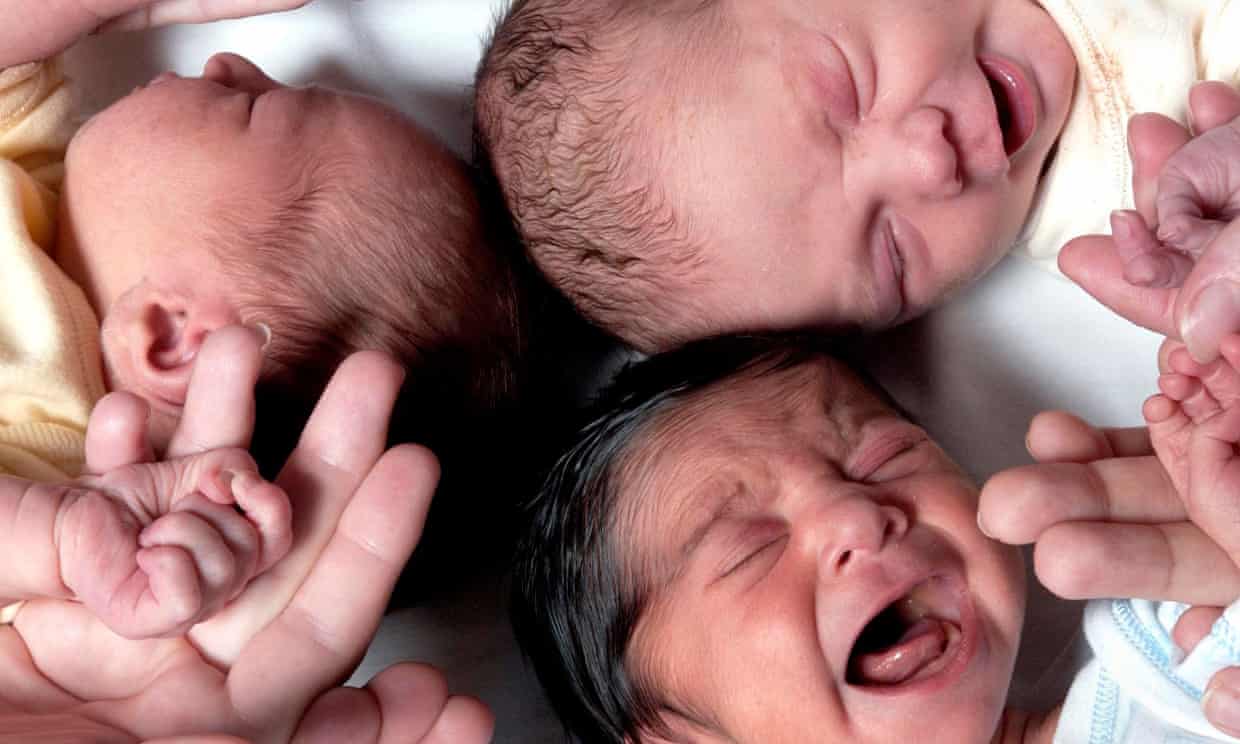Public policies shouldn’t be shaped around boosting birth rates, says Madeleine Hewitt. Plus a letter from Val Harding
While it’s a tragedy that so many are afraid to have children due to climate breakdown, that doesn’t have to be a decision drawn from fear, but a positive, proactive choice to help solve the climate crisis (More people not having children due to climate breakdown fears, finds research, 9 November).
Our growing numbers place increasing strain on the environment, with the IPCC having just last year cited population growth as one of the two strongest drivers (alongside per capita GDP) of carbon emissions. A greater public understanding of how the climate crisis will impact future generations is a good thing, motivating and equipping us all to take the actions and demand the changes that are so vitally needed. In light of this, public policies should be shaped to strengthen environmental protections and adapt to managing an ageing population, rather than boost birth rates. A universal human pursuit is to want to improve things for the next generation, even if in this case it means having a smaller one.
Madeleine Hewitt
Campaigns and media officer, Population Matters
Your article suggests that to decide not to have children for environmental reasons was seen as an “eccentric decision” until recently. However, this is not a new phenomenon. Women have long been making decisions not to have children for political and environmental reasons, and were not necessarily always seen as eccentric. In the 1970s, two of my closest female friends decided not to have children.
These decisions were based on a sense of moral responsibility and concerns about the geopolitics of that era rather than climate change now, and also on concerns that the responsibilities of work in politics and activism in that decade were incompatible with the responsibilities of parenthood.
Many feminist activists in the 1960s and 70s thought hard about the issues of parenthood, and friends and family did not lack understanding. My grandmother, who had been a suffragette, completely understood.
Val Harding
West Norwood, London
